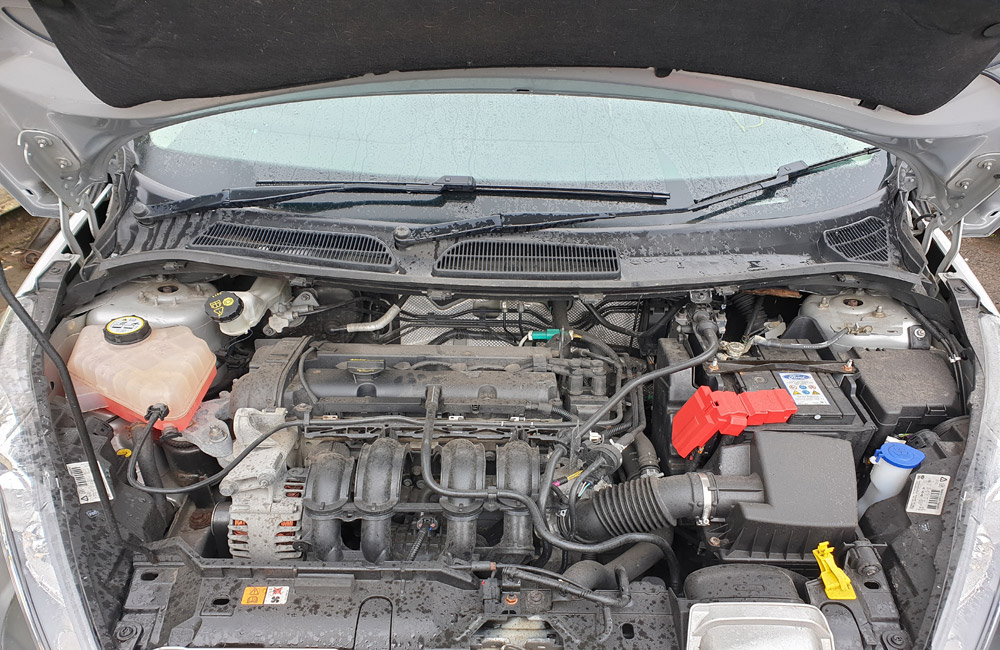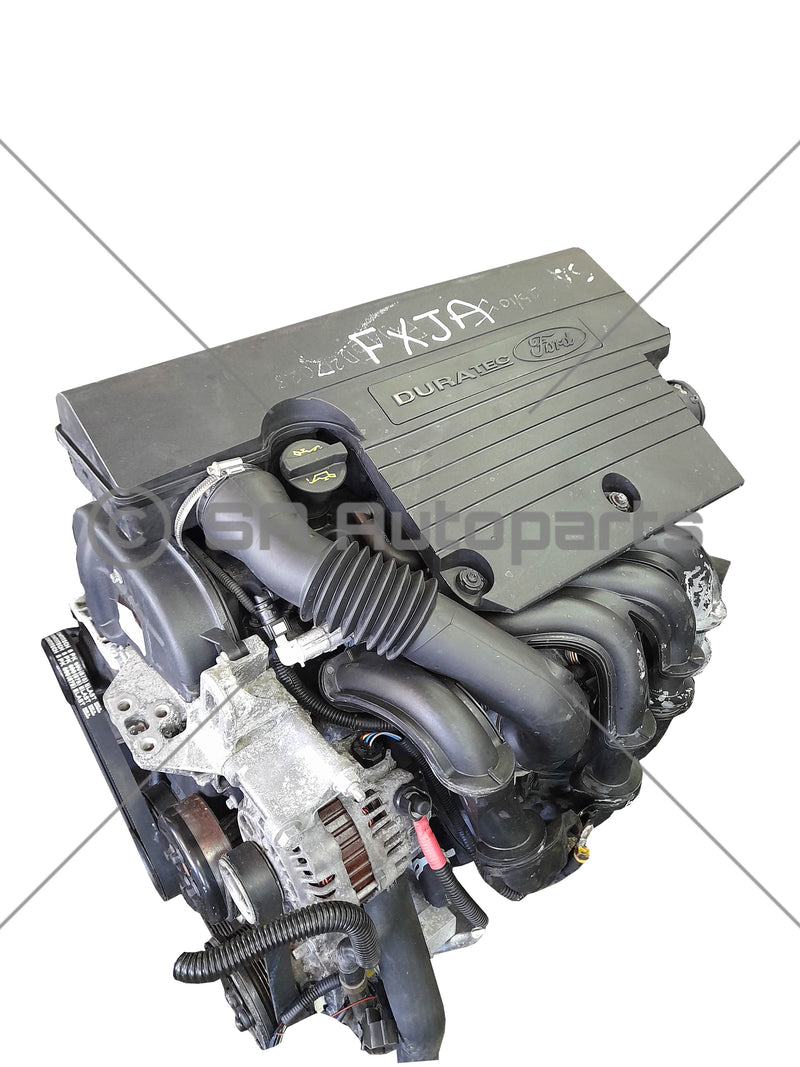The Future of Engines: Developments Driving Lasting Power Solutions
As the auto market browses the vital shift towards sustainability, the future of engines is increasingly specified by groundbreaking developments. Electric engine innovations, together with promising advancements in hydrogen gas cells and biofuels, are reshaping the landscape of power solutions. The introduction of hybrid systems additionally complicates this advancement, providing both challenges and chances to lower emissions efficiently. Paired with the integration of synthetic knowledge in engine layout, these technological strides increase important questions about their long-lasting feasibility and effect on conventional paradigms. What might this suggest for the industry and consumers alike?
Electric Engine Developments
The development of electric engine developments represents a critical shift in the vehicle and aerospace markets, driven by the immediate requirement for sustainable options to nonrenewable fuel sources. This transition is characterized by significant developments in battery innovation, power electronics, and electrical motor layout, which jointly boost the performance and efficiency of electrical engines.
Current advancements have actually brought about the production of lighter, extra energy-dense batteries, such as lithium-silicon and solid-state batteries, which guarantee longer varieties and much shorter charging times. Additionally, improvements in electric motor effectiveness, such as the use of irreversible magnets and progressed cooling down systems, make it possible for electric engines to run successfully under differing conditions. These improvements not only improve car performance but also add to a reduction in total energy usage.
Moreover, the assimilation of innovative software application algorithms has actually enhanced energy management in electrical cars, enabling regenerative stopping and predictive billing approaches. As suppliers progressively embrace electrical propulsion, the automobile and aerospace industries are observing a paradigm change towards greener technologies. This development not only satisfies regulatory needs however also lines up with consumer preferences for eco-friendly transportation options, solidifying electrical engines as a cornerstone of future lasting flexibility.
Improvements in Biofuels
As the automobile and aerospace markets increasingly prioritize sustainable power resources, developments in biofuels become a corresponding service to electrical engines. Biofuels, originated from organic products such as plants, waste, and algae, offer an ingenious opportunity for decreasing greenhouse gas discharges and dependence on fossil gas.
Current research has concentrated on improving the performance and sustainability of biofuel production. Second-generation biofuels utilize non-food feedstocks, lessening competitors with food supply and lowering environmental impact. Innovations in synthetic biology have enabled the engineering of bacteria to create biofuels a lot more efficiently, leading to higher yields and reduced manufacturing prices.
In addition, the growth of drop-in biofuels enables smooth assimilation right into existing facilities, allowing a smoother shift for markets typically based on nonrenewable fuel sources. ford fiesta engine. These fuels can be made use of in existing engines without alterations, promoting their fostering across various sectors
Investments in biofuel technology, in addition to encouraging plans, are important to drive advancement and scalability. As the worldwide community seeks to fight climate modification, biofuels use a practical, prompt option that lines up with the overarching objective of sustainability in transport and air travel.
Hydrogen Gas Cell Innovation
A growing number of scientists and business are exploring hydrogen gas cell technology as a feasible option to conventional source of power in transportation and energy systems. This innovation transforms chemical energy from hydrogen right into electricity via an electrochemical reaction, with water as the only by-product, making it an environmentally friendly option.
The core of hydrogen gas cells is the fuel cell stack, where hydrogen molecules are split into electrons and protons. The circulation of electrons produces electricity, while protons relocate through a membrane to integrate with oxygen from the air, forming water. This procedure results in high effectiveness and low discharges, positioning hydrogen gas cells as an essential gamer in the transition to sustainable energy.
Considerable innovations have been made in enhancing Go Here the toughness and performance of fuel cells, together with decreasing prices through cutting-edge production techniques. The advancement of hydrogen manufacturing approaches, such as electrolysis powered by renewable energy resources, enhances the sustainability of the overall system. As facilities for hydrogen refueling expands and production approaches end up being extra reliable, hydrogen fuel cell modern technology holds terrific promise for decarbonizing various fields, consisting of heavy-duty transportation and stationary power generation.
Hybrid Solutions and Their Effect
Crossbreed systems represent a substantial development in sustainable engine modern technology, combining typical inner burning engines with electric propulsion to maximize energy performance and lower exhausts (ford fiesta engine). This dual strategy enables cars to make use of both source of power, allowing higher versatility in energy intake and reducing reliance on nonrenewable fuel sources

Along with ecological advantages, crossbreed systems supply consumers a sensible change towards fully electrical automobiles. They reduce range stress and anxiety by combining the benefit of fuel with the benefits of electric propulsion, making them an appealing choice for a broader target market. As manufacturers purchase hybrid innovation, the development of advanced battery systems and light-weight materials remains to enhance efficiency. On the whole, hybrid systems represent a critical action in the direction of accomplishing lasting transportation and addressing the urgent requirement for eco friendly power solutions.
The Function of AI in Engine Design
Leveraging innovative algorithms and artificial intelligence methods, the auto industry is progressively incorporating expert system (AI) right into engine layout processes. AI improves the performance and performance of design by examining substantial datasets to identify optimal setups and efficiency criteria. This capability enables designers to imitate various operating problems and predict engine habits under multiple circumstances, substantially decreasing the moment and expense connected with typical prototyping approaches.
Furthermore, AI promotes the development of advanced materials and combustion processes tailored for sustainability. By optimizing fuel efficiency and minimizing emissions, AI-driven designs align with worldwide efforts aimed at decreasing the carbon footprint of automobile engines. Artificial intelligence formulas can additionally forecast upkeep requirements, resulting in boosted integrity and durability of engine elements.
Furthermore, AI is important in the integration of electrification technologies, such as crossbreed systems, where it can enhance battery administration and energy recovery procedures. As the market moves towards even more lasting power options, the role of AI in engine design becomes increasingly essential, driving innovation and enhancing the efficiency of future engines. Inevitably, the cooperation in between AI and engine style declares a new era of smarter, cleaner, and more reliable auto technologies.

Conclusion
In verdict, the future of engines is being formed by a merging of cutting-edge modern technologies that hop over to these guys focus on sustainability. Electric engine improvements, biofuel advancements, hydrogen gas cells, and hybrid systems collectively contribute to a significant reduction in emissions and environmental influence.
Electric engine advancements, alongside appealing developments in hydrogen fuel cells and biofuels, are reshaping the landscape of power options. In addition, enhancements in electrical motor performance, such as the use of long-term magnets and advanced cooling down systems, make it possible for electrical engines to operate successfully under varying conditions. By optimizing Discover More Here gas effectiveness and lessening exhausts, AI-driven layouts line up with worldwide initiatives intended at minimizing the carbon footprint of automotive engines. As the industry relocates in the direction of more lasting power options, the function of AI in engine style becomes increasingly crucial, driving development and enhancing the efficiency of future engines. Electric engine improvements, biofuel developments, hydrogen gas cells, and hybrid systems collectively add to a substantial reduction in discharges and ecological influence.
Comments on “Troubleshooting Ford Fiesta Engine Problems: What You Need to Know”